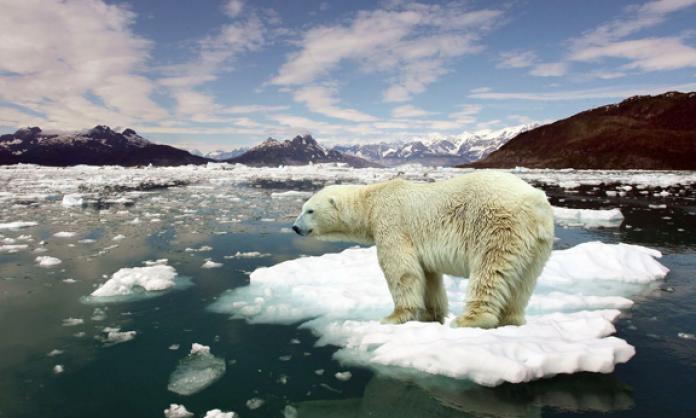It’s hard not to be pessimistic about climate change. The more attention you pay to the science, the more it seems the world is heading towards catastrophe, and our leaders seem little inclined to do anything about it.
A widely shared recent piece by David Wallace-Wells in New York magazine, “The uninhabitable earth”, laid out the worst case scenario. Among the most terrifying possibilities is that increasing acidification of the oceans will trigger a feedback loop in which oxygen-free “dead zones” spread, killing off most marine life and releasing enough hydrogen sulphide to poison the earth.
As Wallace-Wells points out, this is exactly what happened in one of the world’s five previous mass extinctions, 252 million years ago: “It began when carbon warmed the planet by five degrees, accelerated when that warming triggered the release of methane in the Arctic, and ended with 97 percent of all life on Earth dead”.
The high end of the Intergovernmental Panel on Climate Change’s (IPCC) prediction for temperatures rises through to 2100 is 4.8 degrees Celsius. Another recent study found that if emissions continue to rise at their current rate, the temperature increase could be as much as 7 degrees.
Wallace-Wells’ piece was followed by a barrage of articles on “what you can do” to tackle climate change. Many drew on a study from Lund University in Sweden, published in the journal Environmental Research Letters, which ranked actions people could take by their contribution to reducing emissions.
According to the study, the four most effective actions are, in order: having fewer children, living car free, avoiding air travel and going vegetarian.
Unfortunately, given decades of ideological conditioning by a system that reduces freedom, politics and basically everything else about our lives to consumption, many people will take this advice as good coin. In a world where the real centres of power are so remote from people’s everyday lives, it can seem like our only real hope is, as the saying goes, to “change ourselves”.
The reality is, however, that individual action to address climate change is about as effective as trying to drain the ocean with a bucket.
The “ocean”, in this case, is the entire economic system of capitalism, which has been built up over the past two centuries on the back of fossil fuels. If you try to beat this system by riding your bike to work or choosing not to have children, you will fail.
The reason is simple. The majority of greenhouse gas emissions don’t originate from individual consumption. They arise, rather, from the activities of global corporations.
This much has been made clear by a path-breaking study recently published by environmental organisation CDP (formerly the Carbon Disclosure Project) in conjunction with the Climate Accountability Institute. Their Carbon Majors report breaks with the usual practice of measuring emissions on a national basis and instead tracks emissions by corporations.
The report’s findings are astounding. Since 1988, 71 percent of global industrial emissions have come from just 100 companies (industrial emissions make up more than 90 percent of total greenhouse gas emissions).
The companies are, unsurprisingly, in the business of fossil fuels. Among the biggest emitters are China coal, Saudi Aramco, Exxon Mobil, BP, BHP Billiton, Gazprom and Shell. Total emissions from the fossil fuel industry in the period from 1988 are greater than they were for the 237 years from then back to the dawn of the industrial revolution.
The report classifies emissions as either “Scope 1” or “Scope 3”. Scope 1 emissions come from “the self-consumption of fuel, flaring, and venting or fugitive releases of methane”. Scope 3 emissions “result from the downstream combustion of coal, oil, and gas for energy purposes”. The latter category makes up 90 percent of total company emissions.
Some may counter that including “end use” emissions in the total brings the whole issue back to consumption. Surely, if we all just stop using their products, we can force them to change?
The problem is that these companies’ products have played such a dominant role in the global economy for such a long time that the world we inhabit is structured in a way that makes it virtually impossible to opt out.
The consumption of fossil fuels doesn’t happen only when you fly in a plane, drive your car or turn on the lights. It happens when your house or apartment is being built. It happens when your food is being produced and transported for sale. It happens when Australia’s mineral wealth is extracted and exported overseas.
These are all things over which the vast majority of people have no control. The decisions that have the most impact on carbon emissions are made by the tiny minority at the top of society who occupy company boardrooms. And they’re made with only one thing in mind: profit.
Companies that don’t operate by that logic are, in the dog-eat-dog world of capitalism, likely to be driven out of business by their competitors.
None of this means that there’s nothing we can do. In fact, once you’ve got a clear idea of the problem, it all becomes relatively simple.
Instead of focusing on consumption, we should be focusing on production. Why is it that, despite the overwhelming evidence that fossil fuels are driving our environment and society towards catastrophe, their use continues to increase? The answer is clear: for the minority at the top of society, it’s a very lucrative set-up.
The technology currently exists for us to make a rapid shift to a 100 percent renewable global energy system. But this won’t happen so long as the current “decision makers” – the fossil fuel barons and other capitalists who profit from cheap, dirty energy, and the politicians who serve their interests – are left in charge.
There’s one weird trick that would have a vastly bigger impact on climate change than anything we can do on an individual level. That is, take those 100 companies that are responsible for 71 percent of global emissions, put them in public hands and use their gigantic profits to drive the shift to renewables.
This would create millions of jobs. It would clean up our land, air and water. And with any luck it would enable us to avoid having to scramble for survival on an increasingly hellish planet of dead oceans and a poisonous atmosphere.
So long, however, as we’re all looking inward at our own supposedly damaging behaviour, we’re not going to be able to build the kind of movement we need to make this happen. If we’re to avert catastrophe, we need less of “change yourself” and more of “fight the power”.











